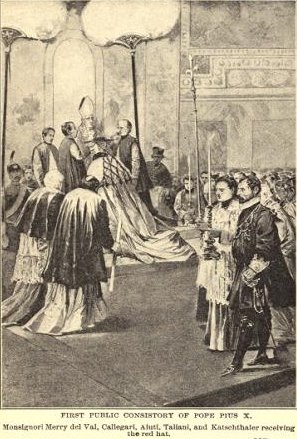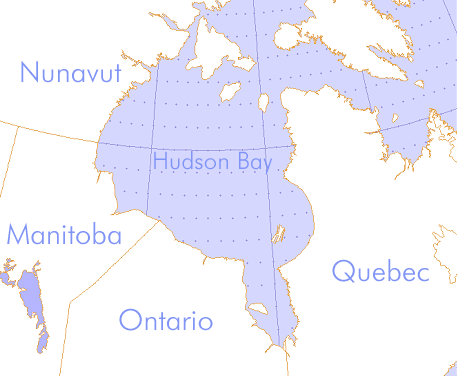|
Federigo Ubaldini
Federigo Ubaldini (1610 - 1657) was an Italian Dante and Petrarch scholar, born in Siena. He was secretary to Cardinal Francesco Barberini, and later secretary to the papal consistory in Rome. He published a biography of Angelo Colocci and various notes on the Renaissance poets. He also created annotations about the Divine Comedy. di Giuseppe Izzi, Enciclopedia Dantesca (1970). In 1642, Federigo edited a publication of the work ''Il Tesoro'' by Brunetto Latini
Brunetto Latini (who signed his name ''Burnectus Latinus'' in Latin and ''Burnecto Latino'' in Italian; –1294) was an Italian philosopher, scholar, notary, politician and ...
[...More Info...] [...Related Items...] OR: [Wikipedia] [Google] [Baidu] |
Dante
Dante Alighieri (; most likely baptized Durante di Alighiero degli Alighieri; – September 14, 1321), widely known mononymously as Dante, was an Italian Italian poetry, poet, writer, and philosopher. His ''Divine Comedy'', originally called (modern Italian: ) and later christened by Giovanni Boccaccio, is widely considered one of the most important poems of the Middle Ages and the greatest literary work in the Italian language. Dante chose to write in the vernacular, specifically, his own Tuscan dialect, at a time when much literature was still written in Latin, which was accessible only to educated readers, and many of his fellow Italian poets wrote in French or Provençal dialect, Provençal. His ' (''On Eloquence in the Vernacular'') was one of the first scholarly defenses of the vernacular. His use of the Florentine dialect for works such as ''La Vita Nuova, The New Life'' (1295) and ''Divine Comedy'' helped establish the modern-day standardized Italian language. His wo ... [...More Info...] [...Related Items...] OR: [Wikipedia] [Google] [Baidu] |
Petrarch
Francis Petrarch (; 20 July 1304 – 19 July 1374; ; modern ), born Francesco di Petracco, was a scholar from Arezzo and poet of the early Italian Renaissance, as well as one of the earliest Renaissance humanism, humanists. Petrarch's rediscovery of Cicero's letters is often credited with initiating the 14th-century Italian Renaissance and the founding of Renaissance humanism. In the 16th century, Pietro Bembo created the model for the modern Italian language based on Petrarch's works, as well as those of Giovanni Boccaccio, and, to a lesser extent, Dante Alighieri. Petrarch was later endorsed as a model for Italian style by the . Petrarch's sonnets were admired and imitated throughout Europe during the Renaissance and became a model for lyrical poetry. He is also known for being the first to develop the concept of the "Dark Ages (historiography), Dark Ages". [...More Info...] [...Related Items...] OR: [Wikipedia] [Google] [Baidu] |
Siena
Siena ( , ; traditionally spelled Sienna in English; ) is a city in Tuscany, in central Italy, and the capital of the province of Siena. It is the twelfth most populated city in the region by number of inhabitants, with a population of 52,991 as of 2025. The city is historically linked to commercial and banking activities, having been a major banking centre until the 13th and 14th centuries. Siena is also home to the List of oldest banks in continuous operation, oldest bank in the world, the Banca Monte dei Paschi di Siena, Monte dei Paschi, which has been operating continuously since . Several significant Mediaeval and Renaissance painters were born and worked in Siena, among them Duccio di Buoninsegna, Ambrogio Lorenzetti, Simone Martini and Stefano di Giovanni, Sassetta, and influenced the course of Italian and European art. The University of Siena, originally called ''Studium Senese'', was founded in 1240, making it one of the List of oldest universities in continuous oper ... [...More Info...] [...Related Items...] OR: [Wikipedia] [Google] [Baidu] |
Francesco Barberini (1597–1679)
Francesco Barberini (23 September 1597 – 10 December 1679) was an Italian Catholic Cardinal. The nephew of Pope Urban VIII (reigned 1623–1644), he benefited immensely from the nepotism practiced by his uncle. He was given various roles within the Vatican administration but his personal cultural interests, particularly in literature and the arts, meant that he became a highly significant patron. His secretary was the antiquarian Cassiano dal Pozzo who was also a discerning patron of the arts. Francesco was the elder brother of Cardinal Antonio Barberini and Taddeo Barberini who became Prince of Palestrina. Life He was born in Florence to Carlo Barberini and Costanza Magalotti. Barberinis mother was known for extreme piety. In 1600 his uncle Cardinal Maffeo Barberini invited his brother and his family to join him in Rome. During Barberinis childhood his and his two brothers education was closely supervised by their father and uncle. Barberinis two sisters Camilla and Clar ... [...More Info...] [...Related Items...] OR: [Wikipedia] [Google] [Baidu] |
Papal Consistory
In the Catholic Church, a consistory is a formal meeting of the College of Cardinals called by the pope. There are two kinds of consistories, extraordinary and ordinary. An "extraordinary" consistory is held to allow the pope to consult with the entire membership of the College of Cardinals. An "ordinary" consistory is ceremonial in nature and is normally attended by cardinals resident in Rome. For example, the pope elevates new cardinals to the College at a consistory; Pope Francis called consistories for ceremonies of canonization; and Pope Benedict announced his decision to retire in 2013 at a consistory. A meeting of the College of Cardinals to elect a new pope is not a consistory, but a conclave. History The term ''consistory'' comes from the ; "stand together".''Papal Consistory'' by Kevin Knight (Catholic Encyclopedia, 2009) ... [...More Info...] [...Related Items...] OR: [Wikipedia] [Google] [Baidu] |
Angelo Colocci
Angelo Colocci (; 14671549) was a papal secretary of Pope Leo X, a romance Philology, philologist, and a Renaissance humanist. He assembled a large collection of antiquities in his villa beside the Aqua Virgo. Life Colocci was born in 1467 at Iesi in Marche.. He came to Rome in 1497 as a young man. From 1511 he worked as one of the apostolic secretaries, a demanding position that curtailed his private literary abilities at the same time it placed him in the social center of the humanists at the court of Pope Julius II, as a correspondent of Jacopo Sadoleto, Pietro Bembo and Aldus Manutius in Venice.Lowry 2003. In 1513 he bought a garden property near the Trevi Fountain, which, with the additional draw of his fine library, became a meeting place of the struggling Roman Academy that had been founded by the late Pomponio Leto (died 1497). This garden was sited in the hollow between the Quirinal Hill, Quirinal and the Pincio, in the southern reaches of the ancient Gardens of Sallust, ... [...More Info...] [...Related Items...] OR: [Wikipedia] [Google] [Baidu] |
Brunetto Latini
Brunetto Latini (who signed his name ''Burnectus Latinus'' in Latin and ''Burnecto Latino'' in Italian; –1294) was an Italian philosopher, scholar, notary, politician and statesman. He was a teacher and friend of Dante Alighieri. Life Brunetto Latini was born in Florence in 1220 to a Tuscan noble family, the son of Buonaccorso Latini. He belonged to the Guelph party. He was a notary and a man of learning, much respected by his fellow citizens and famed for his skill as an orator. He expounded the writings of Cicero as guidance in public affairs. He was of sufficient stature to be sent to Seville on an embassy to Alfonso X of Castile to seek help for Florence against the Sienese; the mission was unsuccessful. On his return from Spain, travelling along the Pass of Roncesvalles, he describes meeting a student from Bologna astride a bay mule, who told him of the defeat of the Guelphs at the Battle of Montaperti. As a result, Latini was exiled from his native city. He took refuge ... [...More Info...] [...Related Items...] OR: [Wikipedia] [Google] [Baidu] |
1610 Births
Some have suggested that 1610 may mark the beginning of the Anthropocene, or the 'Age of Man', marking a fundamental change in the relationship between humans and the Earth system, but earlier starting dates (ca. 1000 C.E.) have received broader consensus, based on high resolution pollution records that show the massive impact of human activity on the atmosphere. Events January–March * January 6 – ''Nossa Senhora da Graça'' incident: A Portuguese carrack sinks near Nagasaki, after fighting Japanese samurai for four nights. * January 7 – Galileo Galilei first observes the four Galilean moons of Jupiter: Ganymede, Callisto, Europa and Io, but is unable to distinguish the latter two until the following day. * February 24 – English courtier Thomas Roe sets out on an expedition to The Guianas and Amazon River. * March 13 – Galileo Galilei's treatise on astronomy, ''Sidereus Nuncius'', the first printed scientific record of observations thro ... [...More Info...] [...Related Items...] OR: [Wikipedia] [Google] [Baidu] |
1657 Deaths
Events January–March * January 8 – Miles Sindercombe and his group of disaffected Levellers are betrayed in their attempt to assassinate Oliver Cromwell by blowing up the Palace of Whitehall in London and are arrested. * January 29 – Rule of the Major-Generals (regional military government) in England is abolished. * February 4 – Resettlement of the Jews in England: Oliver Cromwell gives Antonio Fernandez Carvajal the assurance of the right of Jews to remain in England. * February 23 – In England, the ''Humble Petition and Advice'' offers Lord Protector Cromwell the crown. * March 2 – The Great Fire of Meireki in Edo, Japan, destroys most of the city and damages Edo Castle, killing an estimated 100,000 people. * March 23 – Anglo-Spanish War (1654–60): By the Treaty of Paris, France and England form an alliance against Spain; England will receive Dunkirk. April–June * April 20 ** Anglo-Spanish War – Battle ... [...More Info...] [...Related Items...] OR: [Wikipedia] [Google] [Baidu] |
People From Siena
The term "the people" refers to the public or common mass of people of a polity. As such it is a concept of human rights law, international law as well as constitutional law, particularly used for claims of popular sovereignty. In contrast, a people is any plurality of persons considered as a whole. Used in politics and law, the term "a people" refers to the collective or community of an ethnic group or nation. Concepts Legal Chapter One, Article One of the Charter of the United Nations states that "peoples" have the right to self-determination. Though the mere status as peoples and the right to self-determination, as for example in the case of Indigenous peoples (''peoples'', as in all groups of indigenous people, not merely all indigenous persons as in ''indigenous people''), does not automatically provide for independent sovereignty and therefore secession. Indeed, judge Ivor Jennings identified the inherent problems in the right of "peoples" to self-determination, as i ... [...More Info...] [...Related Items...] OR: [Wikipedia] [Google] [Baidu] |
17th-century Italian Writers
The 17th century lasted from January 1, 1601 (represented by the Roman numerals MDCI), to December 31, 1700 (MDCC). It falls into the early modern period of Europe and in that continent (whose impact on the world was increasing) was characterized by the Baroque cultural movement, the latter part of the Spanish Golden Age, the Dutch Golden Age, the French '' Grand Siècle'' dominated by Louis XIV, the Scientific Revolution, the world's first public company and megacorporation known as the Dutch East India Company, and according to some historians, the General Crisis. From the mid-17th century, European politics were increasingly dominated by the Kingdom of France of Louis XIV, where royal power was solidified domestically in the civil war of the Fronde. The semi-feudal territorial French nobility was weakened and subjugated to the power of an absolute monarchy through the reinvention of the Palace of Versailles from a hunting lodge to a gilded prison, in which a greatly expande ... [...More Info...] [...Related Items...] OR: [Wikipedia] [Google] [Baidu] |






